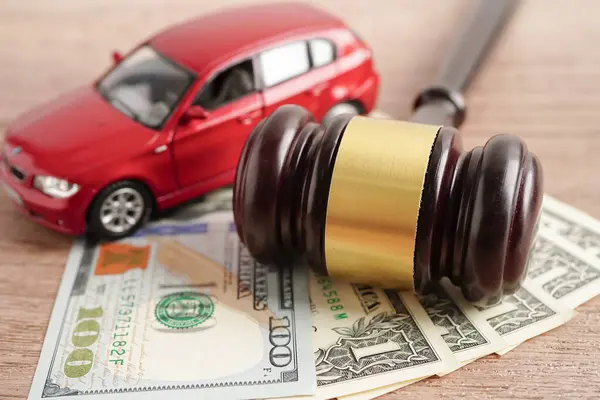California’s Lemon Law And Used Car Buyback: Protecting Your Investment
California is known for its consumer-friendly policies, and one of the most crucial protections for car buyers is the state's Lemon Law. This law offers buyers recourse when they purchase a defective vehicle. While many associate Lemon Laws with new cars, California's version also applies to used cars under certain conditions. Let’s dive deeper into how California’s Lemon Law works, particularly concerning used car buybacks, and how it protects consumers from costly mistakes.
Understanding California's Lemon Law
California’s Lemon Law, officially known as the Song-Beverly Consumer Warranty Act, is a powerful tool for consumers who find themselves stuck with defective vehicles. The law ensures that if a car is repeatedly faulty despite attempts to repair it, the consumer is entitled to a remedy. Typically, this remedy is either a replacement vehicle or a buyback of the defective car.
When Does the Lemon Law Apply to Used Cars?
Not all used cars are covered by California’s Lemon Law. However, the law does apply under specific conditions:
- The car was sold with a dealer warranty: If a used car is sold with a written warranty, either through the manufacturer or dealer, and experiences problems covered by that warranty, it may be eligible for protection under the Lemon Law.
- It falls under the certified pre-owned category: Many certified pre-owned (CPO) vehicles come with extended warranties. If a problem arises during the warranty period that cannot be fixed after a reasonable number of attempts, the car may be eligible for a buyback or replacement.
- The car is leased or purchased for personal, family, or household use: The Lemon Law covers used vehicles that were bought or leased for non-commercial use, protecting everyday consumers.
What Qualifies a Car as a Lemon?
For a vehicle, whether new or used, to be considered a "lemon" under California law, it must meet certain criteria. The car must have a substantial defect that impairs its use, value, or safety, and the defect must persist even after a reasonable number of repair attempts. Generally, this means:
- The defect affects safety: If the car has issues with brakes, steering, or any other critical system that affects safety, it may be considered a lemon.
- The issue impacts the value of the car: A defect that significantly diminishes the value of the vehicle also qualifies the car as a lemon.
- Multiple repair attempts have failed: If the manufacturer or dealer has made multiple attempts to repair the defect and failed, the vehicle can be classified as a lemon.

How the Used Car Buyback Process Works
When a used car qualifies as a lemon under California's Lemon Law, the consumer has the right to request a buyback. A buyback is a process where the manufacturer repurchases the vehicle from the consumer, reimbursing them for the costs they incurred.
Step-by-Step Process for a Buyback
- Notifying the Manufacturer: The first step in the buyback process is notifying the manufacturer of the defect. Consumers should document the issues they’ve experienced, including repair attempts and communications with the dealer or manufacturer.
- Repairs and Inspection: Before a buyback is initiated, the manufacturer typically has the opportunity to make repairs. If the car cannot be fixed after a reasonable number of attempts, the manufacturer must offer a buyback.
- Buyback Calculation: If a buyback is approved, the amount refunded to the consumer includes the vehicle’s purchase price, taxes, registration fees, and incidental costs. However, the manufacturer may deduct an amount for the miles driven before the defect was reported, known as a mileage offset.
- Returning the Vehicle: Once the buyback terms are agreed upon, the consumer returns the vehicle to the manufacturer or dealer, and the manufacturer processes the refund.
- Resolution: The buyback process should result in a full or partial refund, depending on the circumstances, allowing the consumer to recover their investment.
Consumer Rights During the Buyback Process
California's Lemon Law provides strong protections during the buyback process, ensuring that consumers aren’t left with a defective car. Importantly, the law mandates that the consumer receives a refund for all eligible expenses, including repairs, towing, and rental costs incurred due to the defective vehicle. This prevents consumers from being financially burdened by an issue that is not their fault.

Additionally, consumers are not required to accept a replacement vehicle if they prefer a refund. This choice is essential, as some consumers may have lost confidence in the manufacturer after their experience with a lemon vehicle. Find more information here.
Preventing Lemon Law Issues: Tips for Buyers
While California’s Lemon Law offers protection, the best strategy for used car buyers is to avoid purchasing a lemon in the first place. Here are some key practices for avoiding potential problems:
Research the Vehicle’s History
Before purchasing a used car, buyers should always request a vehicle history report. These reports provide details on the car’s previous owners, accidents, and any reported issues. If a car has a history of recurring problems, it could be a sign that it may turn into a lemon down the line.
Conduct a Thorough Inspection
Having a trusted mechanic inspect a used car before purchase is essential. A thorough inspection can reveal hidden defects or issues that may not be immediately apparent. While dealers are required to disclose known defects, a private inspection gives buyers additional peace of mind.
Check for a Warranty
Whenever possible, consumers should seek out used cars that come with a manufacturer or dealer warranty. A warranty can provide protection if a defect arises, and it increases the likelihood that the car will be covered under California’s Lemon Law if serious issues occur.
Legal Support for Lemon Law Claims
Navigating the Lemon Law process can be complex, especially when dealing with a used car. Fortunately, California law allows consumers to seek legal representation to help with their Lemon Law claims. Many Lemon Law attorneys offer services on a contingency fee basis, meaning they only get paid if the consumer wins their case.

